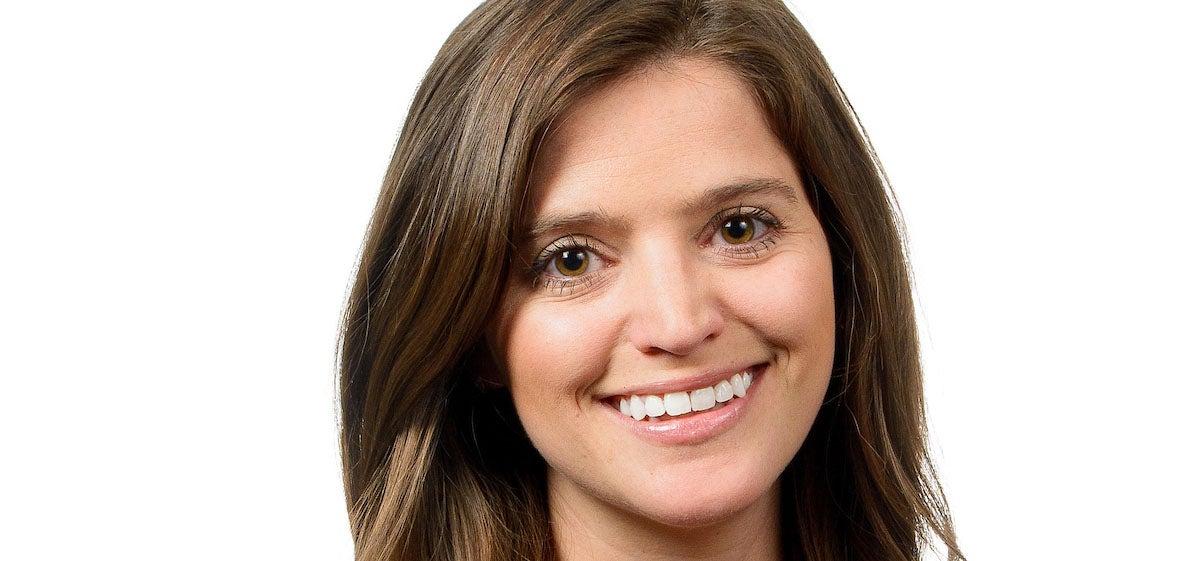
ARCS Scholar creating test capable of rapidly detecting infectious diseases
A PhD student at Arizona State University’s School of Molecular Sciences is working on some potentially life-saving advances in the field of genetic editing.
Studying under Dr. Alexander Green at ASU’s Biodesign Institute, Chemistry PhD candidate Kirstie Swingle’s focus is on the creation of a new diagnostic test capable of rapidly detecting infectious diseases.
“We’re trying to get detection as close to the initial stage of infection,” Swingle said. “That’s the goal.”
To do so, she and Green’s team are using an emerging technology, CRISPR/Cas, to identify protein biomarkers in humans. CRISPR/Cas, a gene-editing system, operates like a cut-and-paste function of a computer, snipping strands of DNA and placing it elsewhere to better immunize the bacterial cells.
Diagnostics utilizing CRISPR/Cas systems have to this point been largely limited to viral infections, but her research with bacteria, specifically targeting protein detection, could be a key to battling future disease outbreaks.
“If you want to detect something in a person that's not just a viral infection, you need to be able to see proteins,” Swingle explained. “DNA and RNA is one thing, but a protein is completely different. So my work is trying to combine these two worlds to make a better diagnostic.”
Swingle’s efforts have led to her being recognized by ARCS Foundation Phoenix in back-to-back years. For the 2019-2020 academic year, Swingle is one of only 13 ASU students to be named an ARCS Foundation Phoenix Scholar. The nonprofit awards $8,500 scholarships to its recipients, selected for their outstanding achievements as PhD students in the areas of science, engineering and medical research. The ASU Graduate College works closely with the ARCS Foundation to mutually support ASU scholars who apply for the award each year.
Visit the Graduate College's website for more information on ARCS awards.
Swingle said she’s always been fascinated by medicine and originally wanted to be a doctor, but once she was introduced to working in a lab, her plans quickly changed. “I liked the puzzle of it all,” she said
“It’s really hard being in a lab, 90 percent of the time nothing works. But then there’s that 10 percent of the time that something does work,” Swingle said. “It’s the best feeling. You could be the first person to ever see something happen, or you could be the first person to ever think about something a certain way. That’s cool.”
While Swingle is still trying to piece her research puzzle together, she believes her work at the Biodesign Institute could one day translate to cheap, accurate, time-efficient testing of diseases like HIV, dengue fever and Zika. As she comes closer to completing her doctoral program, Swingle said it’s the hope of real impact that makes it all worth it.
“Sometimes you’re just trying to pass a class, sometimes you’re just trying to do what you’re told,” Swingle said, “but I think that you should keep in mind that you can have a lot of power and that you should try to do good with it."
“Whatever you’re doing, you want it to better the world.”
More stories from the Graduate Insider

Reflection: Turning knowledge into action
Reflection. It is a simple and powerful word. It invites us to pause, look back, and find meaning in what we have experienced so that we can move forward with clarity and purpose. In universities, reflection helps us adapt today to shape tomorrow. It is how we turn our learning, research, and creativity into impact.

Inside Graduate College’s Three Minute Thesis competition
When Aliyah Egan stepped onto the stage as a master’s student in last year’s Graduate College Three Minute Thesis (3MT) competition, she faced a challenge familiar to many researchers: explaining complex, specialized work to an audience with little or no background in her field.

Mentoring with intention: Strengthening graduate support at ASU
January is National Mentoring Month, a time to celebrate the impact mentoring can have and to reflect honestly on where gaps remain. At Arizona State University, mentoring is recognized as a critical component of graduate student success.